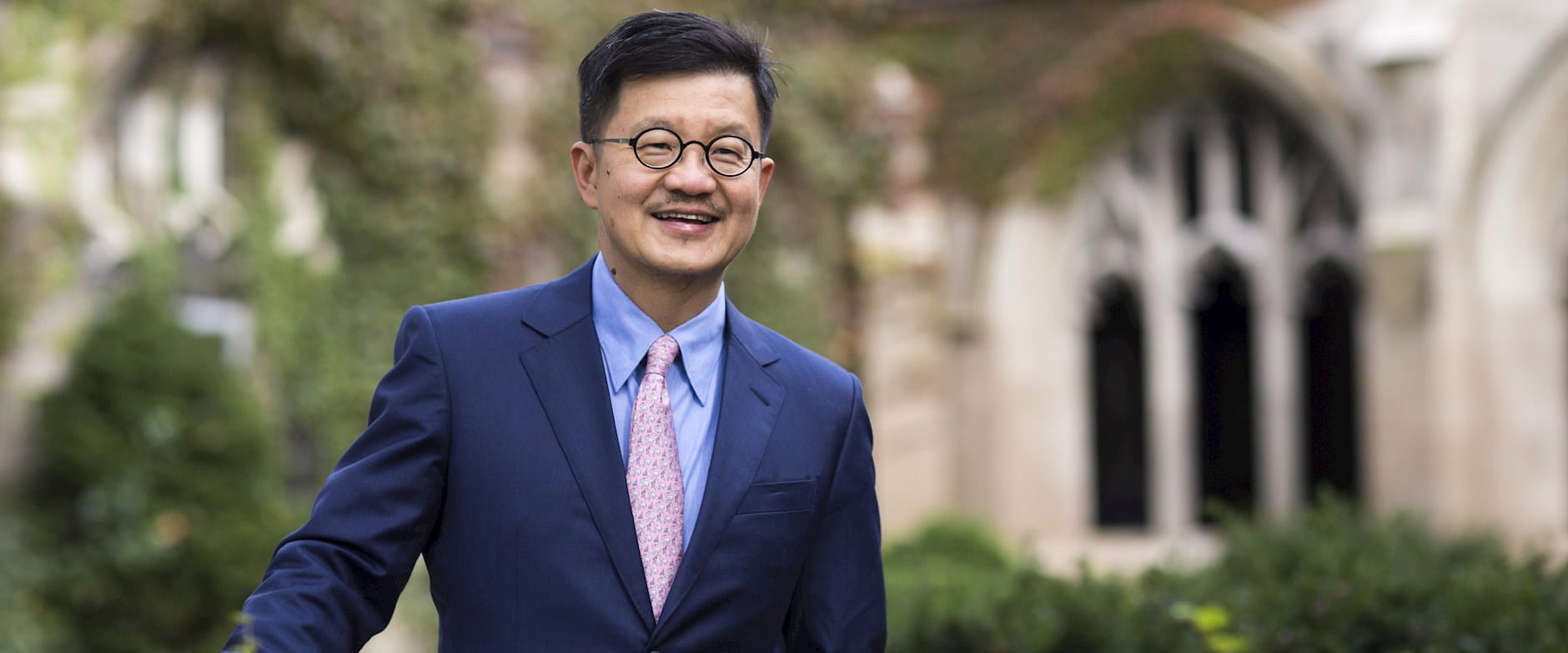
Changemakers Gather for Social Impact
The Rustandy Center’s On Board Chicago conference brings together changemakers to strengthen social change in Chicago—and beyond.
Changemakers Gather for Social Impact
Tandean Rustandy, ’07 (AXP-06), believes that companies should not exist for the sole purpose of making a profit—they should serve and guide people.
That idea was a theme of a virtual Net Impact Speaker Series talk in May 2020 when Rustandy spoke to Booth students during an event cohosted by the Rustandy Center for Social Sector Innovation and Booth’s Net Impact student group.
In a discussion moderated by Christina Hachikian, AB ’02, MBA ’07, clinical associate professor of strategic management, Rustandy shared his experiences and lessons learned building a company in Indonesia, the importance of growing human capital, and his advice for leaders and entrepreneurs today.
Born in Indonesia, Rustandy always envisioned that after pursuing his education in the United States, he would contribute back to his home country. As promised, he returned after receiving his undergraduate degree in the US to start his own company, PT Arwana Citramulia Tbk, in 1993.
“In life, you need to take the challenge,” Rustandy said of returning to Indonesia. “I speak better English and am more independent than most Indonesians. Most people, if they get an education, they will go to another country and stay there. If I stayed in the US, I don’t think I would be what I am today.”
In 2005, he entered Chicago Booth’s Executive MBA Program to receive a deeper financial education and broader business skill set. He applied his learnings to his company, which has become one of the best-performing businesses in the Indonesian building materials market.
Rustandy is recognized not only for his company’s success, but for his commitment to the development of local communities, residents, and the environment. During the Net Impact Speaker Series, Rustandy spoke about his support of local communities.
“I decided to focus on underdeveloped areas,” he said. “That way, I can build up the quality of life of people in that area.”
Throughout the webinar, Rustandy stressed the importance of developing relationships and building human capital by investing in his employees’ well-being—during the good times and the bad. He emphasized the importance of education, especially how investing in education for young people can strengthen a country long term.
Rustandy’s focus on people, not profits, has also made a positive impact on his company during the COVID-19 pandemic. While many manufacturing companies in Indonesia are operating at a lower capacity or have even closed, Rustandy said his company is operating at 100 percent.
“I’m not Superman—it’s because of the Super Team,” he said. “If other businesses just follow my way, I don’t think that could work. It comes from every individual worker.”
One of the key takeaways from Rustandy’s talk was that entrepreneurs shouldn’t look to other businesses to find an example of how to build buy-in among a workforce. He instead encouraged leaders to work to understand their business and employees and to build relationships based on that understanding.
“You can’t look at other companies. You don’t know if they’re doing the right thing,” Rustandy said.
He also spoke of his humble roots and how they inspired him as an entrepreneur. Ultimately, he said, it’s best not to compare yourself to the people “at the top” while you’re starting out.
“You have to have a positive mind,” he said. “The most important thing is your mindset.”
If you'd like to receive updates on social impact stories, events, and research at Chicago Booth, sign up for the Rustandy Center's newsletter. Note: We want to demonstrate our commitment to your privacy. You can review Chicago Booth’s privacy notice for more information.

The Rustandy Center’s On Board Chicago conference brings together changemakers to strengthen social change in Chicago—and beyond.
Changemakers Gather for Social Impact
Emerging nonprofit and government leaders can apply for Chicago Booth's Civic Scholars Program.
Booth Students Pursue Social Impact Careers with MBA Scholarship
A Q&A between Booth's Robert H. Gertner and Mariana Botero, MBA ’19, MPP ’19, who is the cofounder of Shakti, which earned second place in the 2018 SNVC finals.
The SNVC is a Risk-Free Way to Gain Startup Experience